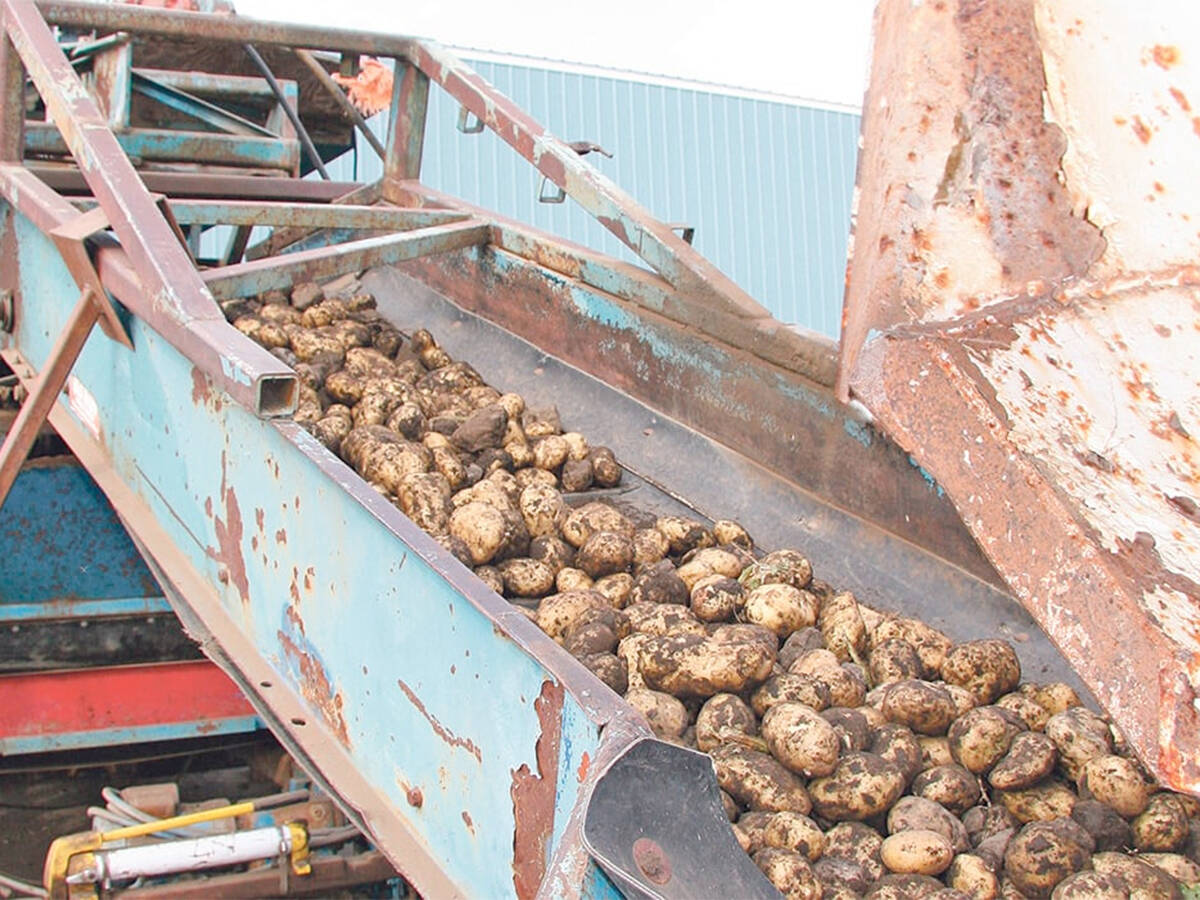A new $24.5-million project backed by Protein Industries Canada (PIC) includes a group of plant protein companies working to tackle some of the sector’s biggest hurdles.
The national cluster for protein is teaming up with Roquette, Prairie Fava, BioNeutra and Plant Up to improve innovation, come up with more diversified products and improve processes for the plant-based protein industry.
PIC will pitch in $10.7 million towards the project, with its partners putting forward $13.7 million.
Read Also

Potato growers beware new PVY strains
Newer strains of potato virus Y (PVY) are creating headaches for potato farms in Eastern Canada, and Manitoba farmers should pay attention
Why it matters: There is pressure to make sure Canadian companies stay competitive as the plant-based protein tide rises.
In a May 7 statement, PIC said the project will address pressing challenges facing plant-based protein, including a rise in global competition and the need to meet increased demand from consumers and packaged goods companies looking for improved taste and more functional ingredients.
Daryl Domitruk, executive director of the Manitoba Pulse and Soybean Growers, says the project is good news for pea and fava growers across the province.
Manitoba has been working to build its presence in the global protein sector. In 2019, the provincial government released its Manitoba Protein Advantage Strategy, with a goal to attract $1.5 billion worth of private investment in plant and animal protein and create over 1,500 jobs by 2025.
“When this whole full reach-out to the global protein industry started, that was a point of diversification,” Domitruk said, pointing to Roquette’s pea protein facility in Portage la Prairie which opened in 2021.
“We started growing more peas when Roquette was established,” he said.
He anticipates that the newly announced project will usher in a second wave of diversification for producers. Companies like Roquette will signal to growers what kind of product they need for their manufacturing processes.
“What we’re hoping is that there will be some signals on the fava bean side and additionally on the pea side for farmers to grow the supply and the quality requirements in the marketplace,” Domitruk said.
He hopes growth in the protein sector will spill over into more investment by governments and businesses into plant breeding, agronomy and other areas of research, especially for fava beans.
“In producing the raw materials for these plants, there are challenges. We would be really excited if this project helped open up the potential for some new, expanded fava bean production … but for that to happen, for Prairie Fava to get the supply and quality of fava beans that they need, farmers need to be supported in doing research.”
PIC has funded breeding work for fava beans before, and currently has a project with Manitoba-based DL Seeds for agronomy work and breeding, said Bill Greuel, PIC’s chief executive officer.
“I think that what we’re able to do and what we funded and supported will help build processing, the markets, breeding and agronomy so they can all grow together.”
Canada needs to solidify its place as a global leader in plant-based ingredients, food and feed, said François-Philippe Champagne, federal minister of innovation, science and industry, in a May 7 release.
The federal government plans to continue collaborating with PIC to ensure that Canadian products remain competitive in both quality and cost as the plant-based protein market evolves, Champagne added.
Federal Agricultural Minister Lawrence MacAulay agreed, noting the growing global demand for plant-based food and ingredients.
“Innovations in pea processing and new fava-based products will help establish more export markets and strengthen the competitiveness of our agricultural sector,” he said in the same release.
Fava fever
PIC and its partners are seeking to build on previous work with peas and fava beans to create more fava-based ingredients and food products, as well as create applications for both pea starch and fibre.
Fava protein is known as a “workhorse protein,” Greuel said, because of its neutral flavour and good solubility.
“I don’t think there’s any reason why we wouldn’t see more fibre protein in burgers and sausages, or whole muscle cuts of meat, which is some food innovation that we’re working on as well.”
It’s hoped that improved processes coming out of the project will keep Canadian plant-based protein companies profitable and competitive, which will go a long way to the industry’s goal of a $25-billion ingredient manufacturing and food-processing sector in Canada, Greuel said.
The project should take around three years and will help “tighten up” domestic supply chains, Greuel added. This will help further improve Canada’s reputation in the plant protein sector.
Nuts and bolts
Roquette’s focus on the project will be on improving pea processing efficacy and developing new ingredients at their Manitoba facility. The company has been a plant-based protein industry leader for decades, with a special focus on innovation, said Jennifer Kimmel, head of research and development for Roquette in the Americas.
“One of our company’s values is ‘forward-looking,’ and this project gives us the perfect platform to put that value into practice so we can find sustainable solutions for some of the biggest challenges facing our industry,” she said.
Roquette’s local plant was designed to produce protein and starch from yellow peas. Working to produce those from fava has been an interesting challenge, James Bozikis, Roquette’s head of communications and public affairs for the Americas, told the Co-operator in an email.
“Our team accepted that challenge and found ways to succeed without requiring major changes at the plant, including working with fava bean processors to provide dehulled fava beans to the plant,” he said. “The team’s hard work was successful and now we are very proud to be able to produce fava protein and starch for the market.”
Prairie Fava will be working with growers to increase fava bean acres and optimize dehulling technology development for current and emerging fava varieties to ensure that the company can supply Roquette’s need for dehulled fava splits.
Once Roquette completes its work testing and scaling up its fava protein isolate, it will begin application and market development.
Plant Up, meanwile, will run tests on the fava bean protein and co-products and give Roquette feedback on how those ingredients function and perform in finished food products. During the project, Plant Up will also work towards developing a pea and fava-based alternative chicken product.
“With Plant Up, we are building a company that offers alternate sources of protein to the evolving needs of Canadian households,” said Amir Malkani, founder and chief executive officer of Plant Up, adding the company already has a range of frozen meals and appetizers it’s working to expand.
“This partnership will provide us with the opportunity to further innovate and develop products that can be used by consumers at home and the wider food service community.”
During the second phase of the project, BioNeutra will evaluate domestic sources of starch, including exploring the feasibility of sourcing wet starch from Roquette. This could reduce the need for additional starch drying processes and transportation costs.
Research institutions and other industry partners with also work with Roquette on the project to develop new technology to help further food-grade pea hull fibre and optimize operations for pea protein processing. Commercializing new pea protein technology will also be a focus.
In addition to the funding announcement, PIC also has a $40-million call for eligible co-investment that would advance research and development into ingredient manufacturing, food processing and co-products, until May 22. For more information, visit proteinindustriescanada.ca.
















